

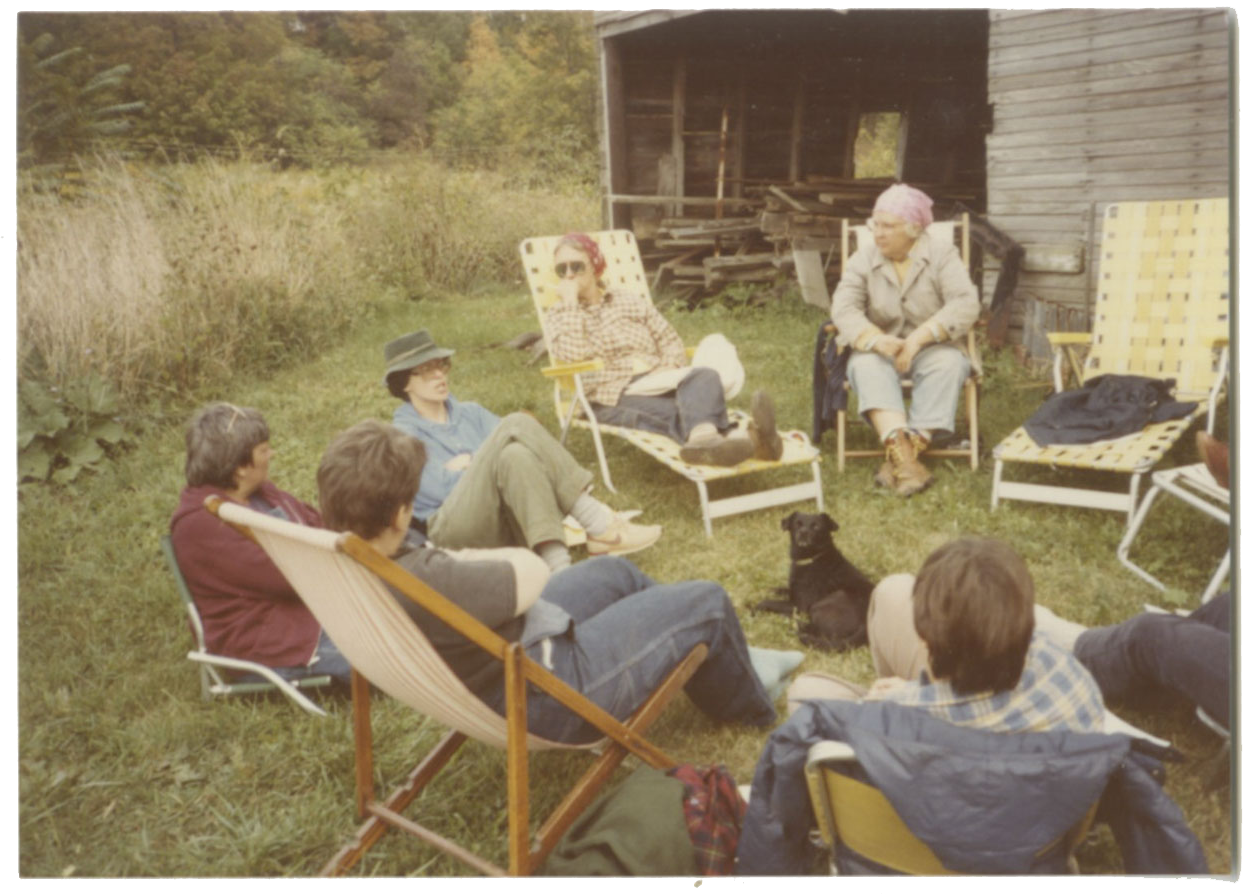
SuBAMUH created a safe space for sisterhood weekends, women’s only music festivals, feminist workshops, and potlucks whenever there was reason to celebrate. Photograph: SuBAMUH archives.
For many years, SuBAMUH (soo-bam-ˈə), or Susan B. Anthony Memorial Unrest Home, was a dream come true for Mary Morgan and Jan Griesinger, who envisioned a rural sanctuary for women, completely free of men. It was a beautiful and safe environment for women to retreat from a world of sexism, violence, and inequality and instead immerse themselves in a world of beauty, fruitful strawberry patches, verdant scenery, and feminist philosophy. Gardening, practical skill-building workshops and pond-side parties with women-led programs filled their days.
Watch Jan Griesinger reflect on the organizing principles of SuBAMUH

Chalkboard at SuBAMUH listing their principles. Photograph: Molly Roberts
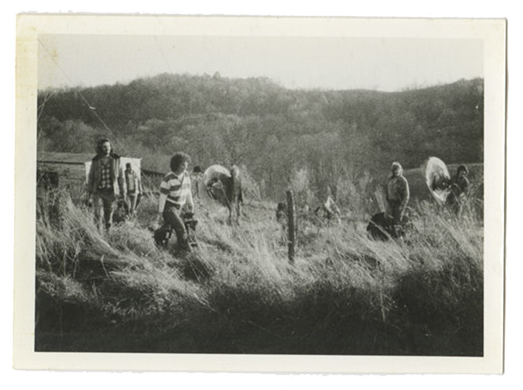
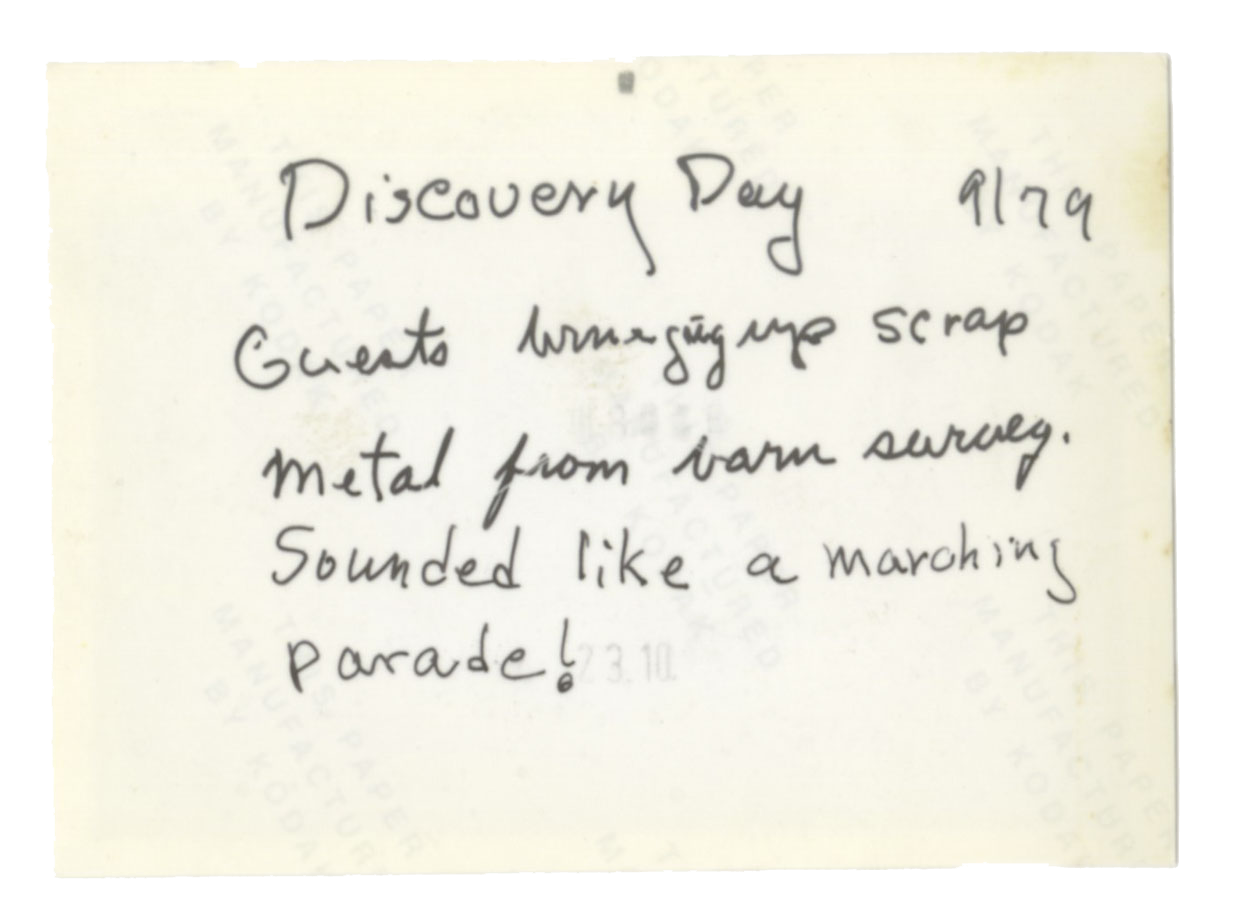
The front and back of a SuBAMUH photograph. The back reads "Discovery Day, 9/79. Guests bringing up scrap metal from barn survey. Sounded like a marching parade!" Photograph: SuBAMUH archives.
Jan and Mary met in a women’s liberation group in Dayton, Ohio, in 1969. When they began their intentional community adventure in 1979 on 157 acres of land in the foothills of Athens, Ohio, feminist groups were an important part of a changing American culture and a challenge to the prevalent patriarchy. SuBAMUH was based on the principles of what Jan calls “the F-word: feminism.” To sustain the community, a collective leadership module was used. The structure was a non-profit corporation with communal governing measures. The seven adult women members had bi-weekly meetings to sort out tasks and allocate responsibilities since they had to maintain the SuBAMUH estate by themselves.
In SuBAMUH’s prime years, it provided residencies for many women, feminist-centered education, and lively gatherings, as well as scenic camping grounds, retreats, and an emotional safe space for women around the country.
“Our goal was a women-only space to have a safe space, safe rural space where women could live, and come and visit,” Griesinger said.
Listen to how feminism regulated power dynamics in SuBAMUH.
Some believe it was this hardline position that weakened SuBAMUH’s potential for survival. For instance, if a same-sex couple of the community had a boy child, they had to leave the community before the boy reached the age of eight. This kind of inflexibility forced some early members to abandon the community. Both Mary and Jan eventually had to leave the community due to their failing health and the lack of support systems nearby.
"SuBAMUH was women-only, although the word separatist was never used”
- Marty Zinn
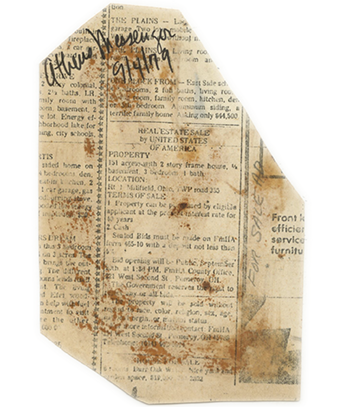
A newspaper clipping showing SuBAMUH's property for sale. Photograph: SuBAMUH archives.
In a recent interview, Jan recognized that the need for women safe spaces might not be as urgent as it was in the past, since times have changed. She hopes the land will be used as a women's land trust.
The SuBAMUH property currently hosts a single LGBTQ residency. In the backyard, you can still see the campground with wood stacked for bonfires, well-used tools rusting in the shed, old chalkboard welcome signs, and empty chairs put away.
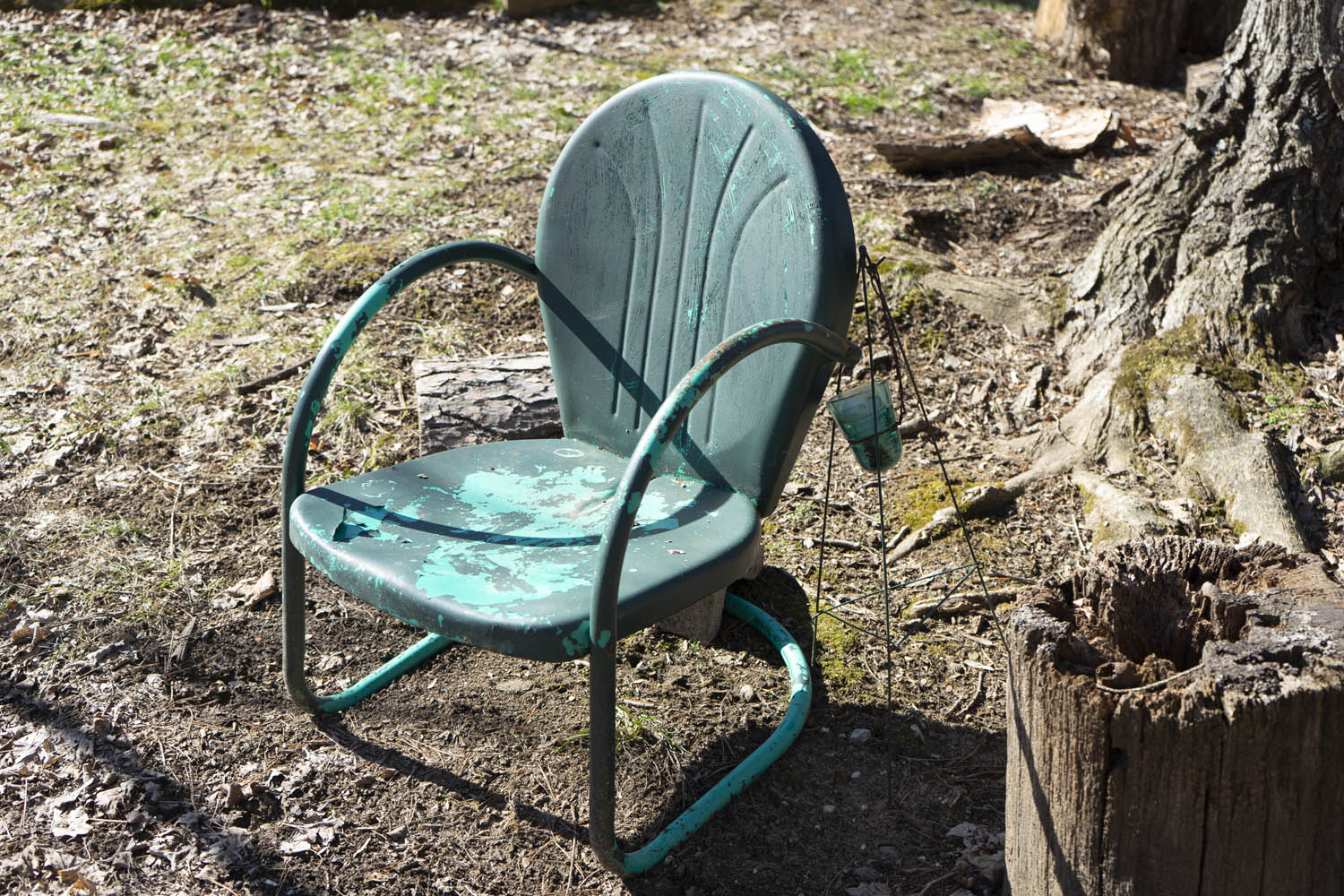
Most everything at SuBAMUH, including these lawn chairs, sit empty and abandoned, waiting for a new group of idealists to rekindle the beautiful property with new life. Photograph: Molly Roberts
As Marty Zinn, a SuBAMUH board member, stated recently, “ SuBAMUH has to change with the changing times, and it’s not an easy thing to sort out. The word feminism is not used very much by the younger generation, so we are trying to understand the younger generations and how they see the world.”
Though this community has now fallen silent, SuBAMUH was once a refuge for fearless women, brimming with activism and hope. The board of SuBAMUH is still searching for a proposal to revitalize this beautiful rural land with new idealism and energy.
SuBAMUH is an intentional community that has come to an end, with only one of its members still living. To learn about how new intentional communities can begin, explore Black Locust Collective— a community in the early stages of development.
Explore Black Locust Collective